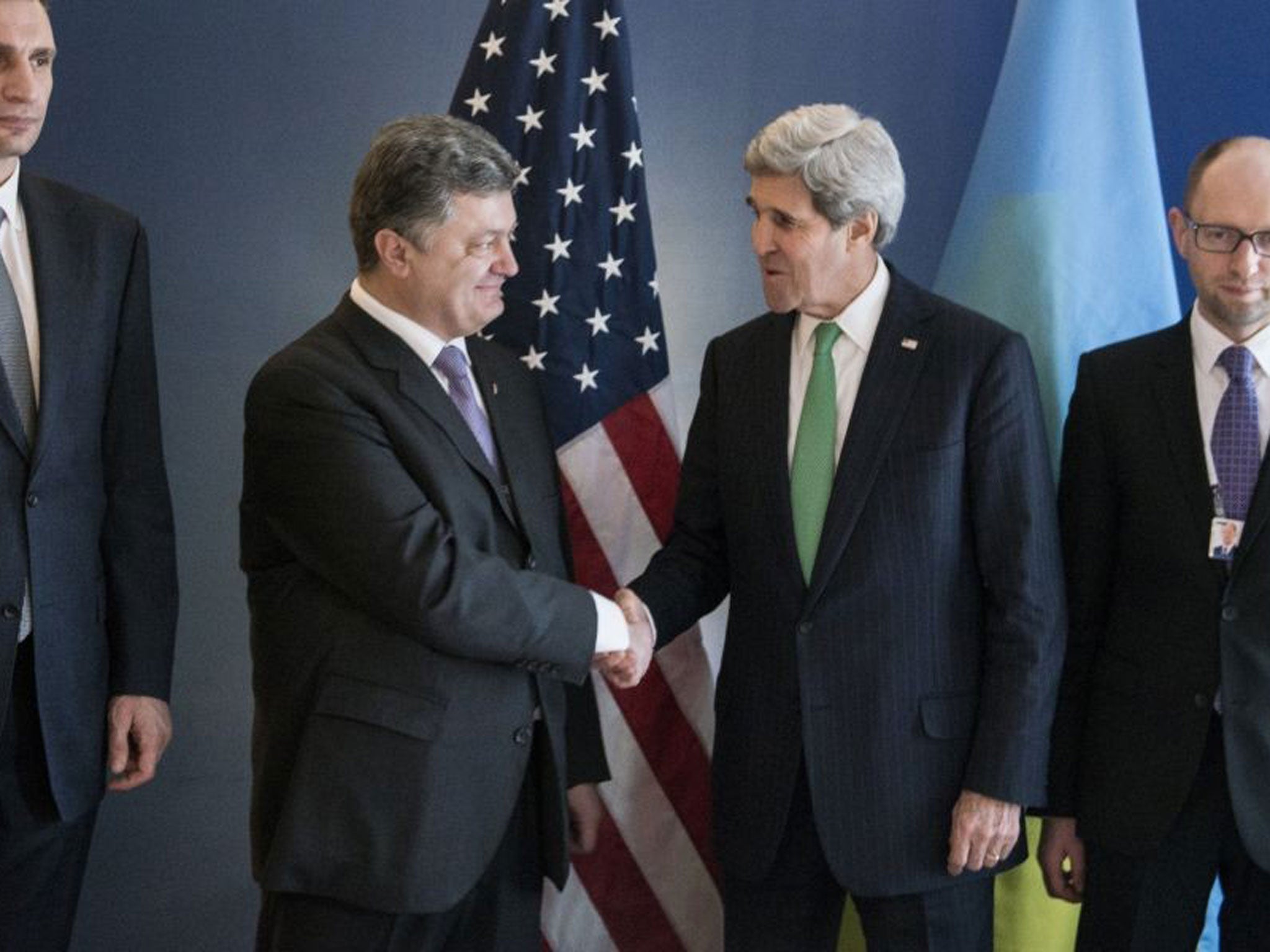Ukraine protests: US steps up search for agreement at Munich Security Conference
US Secretary of State, John Kerry, says 'fight for democratic European future' embodied in Ukrainian protest movement

Far from Kiev, where protesters and government troops remain in a tense and bloody stand-off, the future of Ukraine sparked bitter exchanges between EU, US and Russian leaders yesterday.
The Munich Security Conference, established to promote "peaceful conflict resolution and international cooperation", was the stage for talks over the future of Ukraine – which has been in turmoil since November, when the country's leaders scrapped an EU accord in favour of a £9bn Russian bailout.
Amid claims from Russia that Western countries were "encouraging" violent protests, European Council president Herman Van Rompuy said the "future of Ukraine belongs with the EU".
Ukraine's public protests began peacefully but demonstrations took a more radical turn when authorities passed a harsh anti-protest law clamping down on rights of assembly and movement. More than six people are now reported to have died and hundreds have been injured in clashes between protesters and police.
The US Secretary of State, John Kerry, who was yesterday due to meet key Ukrainian opposition figures, has said the "fight for a democratic European future" is embodied in the Ukrainian protest movement. He added: "The aspirations of citizens are once again being trampled beneath corrupt, oligarchic interests – interests that use money to stifle political opposition and dissent, to buy politicians and media outlets, and to weaken judicial independence."
Among those due to meet Mr Kerry were Arseniy Yatsenyuk, leader of the party of jailed former prime minister Yulia Tymoshenko, and the former boxer Vitali Klitschko, who leads the Udar (Punch) party. The Russian foreign minister, Sergey Lavrov, asked: "Why are many prominent European politicians actually encouraging such actions, although back home they are quick to severely punish any violations of the law?"
Ukraine's president, Viktor Yanukovych, attempted to appease protesters with an amnesty on Friday. The deal was rejected by activists over clauses that would have obligated them to leave municipal buildings and clear the protest camp paralysing Kiev's city centre.
Subscribe to Independent Premium to bookmark this article
Want to bookmark your favourite articles and stories to read or reference later? Start your Independent Premium subscription today.

Join our commenting forum
Join thought-provoking conversations, follow other Independent readers and see their replies